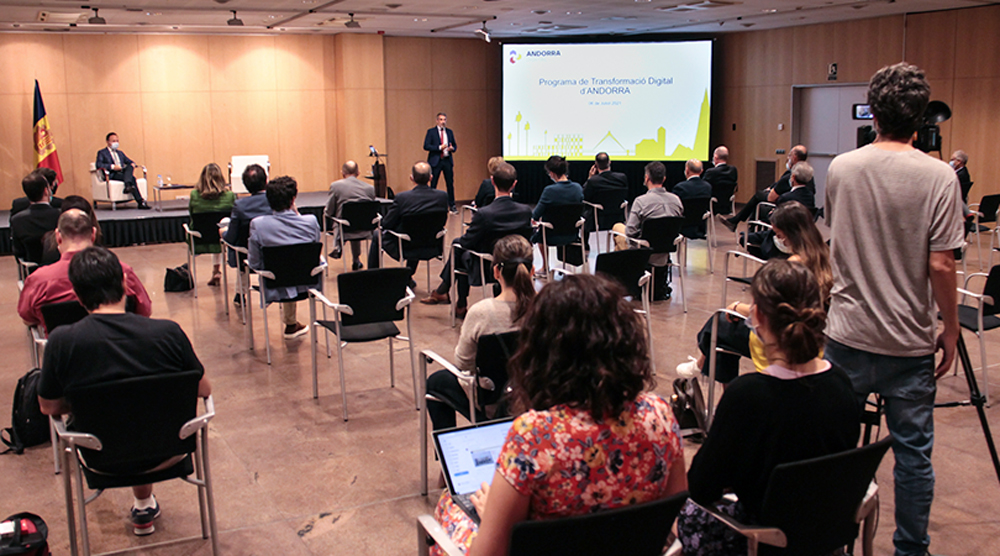The Head of Government, Xavier Espot, stated that digital transformation for both administrative procedures and private projects is one of the Government´s most important actions in the Government´s roadmap, named H23. The Head of Government, along with the State Secretary for Digital Transformation and Strategic Projects, Cesar Marquina, presented on Tuesday the Digital Transformation Project to the economic and social sectors. Espot highlighted that this is “a priority project so as to face Andorra´s large challenges in the mid and long-term”.
Espot stated that Andorra´s digital transformation project contains strategic lines that are to guide both the public and private sectors in an advance towards digitalization over the next three to four years. The program has 50 lines of actions to be carried out through 131 initiatives and “will receive around 20 million euros between 2020 and 2024”, Espot added.
State Secretary Cesar Marquina manifested which are Andorra´s specific current needs in terms of necessary digitalization for the evolution of public administrations, for the development of business capabilities and the evolution of digital competences.
In this sense he highlighted that currently for the Principality´s public sector, “the percentage of procedures available to be done online doesn´t even reach 5%; the level of access to public services is limited to opening hours and the indexes of global cybersecurity are less than optimal”. In the economic and private business field, we have detected that the majority of businesses still have a long road ahead, according to the latest study on Digital Maturity in the Principality carried out by the consulting firm Iniced in collaboration with MoraBanc and the Chamber of Commerce, Industry and Services of Andorra.
Furthermore, Marquina explained that the Program for Digital transformation was designed with specific objectives based on these needs and will allow for the development of a digital country model in the next few years: the project encompasses concrete goals such as enhancing data interoperability and increasing the administration´s automatization, improve citizen´s experiences and optimize business procedures.
In conclusion, the manager of the actions for Digital Transformation and Strategic Projects pointed out that digital unblocking will have an impact of the population, the business network and public administrations, adapting the current normative framework, developing initiatives that enhance the digital capacities of the public and of companies, boosting the country´s tech business network and providing the Principality with a Cybersecurity Agency.
“The advantages of digital transformation are efficiency, agility, comfort and simplicity, for both citizens and companies; any resident or person wanting to come or work in the country will benefit”.

